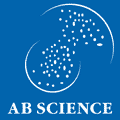
Pancreatic cancer is almost always fatal. Patients diagnosed with pancreatic cancer often have a poorer prognosis compared with other cancers in part because early detection is difficult.
Masitinib is currently investigated in non-resectable locally advanced or metastatic pancreatic cancer, restricted to patients with cancer related pain.
In recognition of the critical need for new treatments, masitinib received orphan drug designation for pancreatic cancer from both the European Medicine Agency (EMA) and the U.S. Food and Drug Administration (FDA).
The potential therapeutic benefit of masitinib in combination with gemcitabine for the treatment of advanced pancreatic ductal adenocarcinoma (PDAC) has been previously reported in preclinical studies, wherein masitinib was shown to enhance the antiproliferative activity of gemcitabine in gemcitabine–refractory pancreatic cancer cell lines [Humbert, 2010].
Summary of pancreatic cancer clinical program with masitinib
| Phase | Design | Population | Primary Target | Patient Target | IDMC recommandation | Study Status | Related publications |
|---|---|---|---|---|---|---|---|
| 2a | Open-label, single group study | Patients with advanced pancreatic cancer | Time to Tumor Progression (TTP) | 22 | NA | Study completed | Mitry, 2010 |
| 2/3 | Prospective, double-blind, placebo-controlled, 2-parallel groups study | Patients with advanced/metastatic pancreatic cancer | Overall survival (OS) | 350 | NA | Study completed | |
| 3 | Prospective, double-blind, placebo-controlled, 2-parallel groups study | Patients with non resectable locally advanced or metastatic pancreatic cancer | Overall survival (OS) | 380 | Continuation of the study (based on safety data) | Recruitment ongoing | – |
Phase 2a proof of concept
Clinical phase 2a proof of concept with masitinib in pancreatic cancer supported the development of masitinib in pancreatic cancer. In this study, patients with unresectable, locally advanced or metastatic pancreatic cancer received oral masitinib combined with standard gemcitabine. The primary endpoint of median Time To Progression (TTP) was 6.4 months (95% CI [2.7–11.7]). Median Overall Survival (OS) was 7.1 months (95% CI [4.8–17.0]).
Phase 2/3 studies
First phase 2/3 study
Second phase 3 study
Incidence of pancreatic cancer has markedly increased over the last few decades. Pancreatic cancer is now the twelfth most common cancer in the world. This cancer is almost always fatal, and is the seventh most common cause of death from cancer. Patients diagnosed with pancreatic cancer often have a poorer prognosis compared with other cancers in part because early detection is difficult. At the time of diagnosis, most patients with pancreatic adenocarcinoma present with locally advanced or metastatic disease and only 10-20% of cases are candidates for curative surgery.
Deplanque G, Demarchi M, Hebbar M, Flynn P, Melichar B, Atkins J, Nowara E, Moyé L, Piquemal D, Ritter D, Dubreuil P, Mansfield CD, Acin Y, Moussy A, Hermine O, Hammel P.
Ann Oncol. 2015 Jun;26(6):1194-200. doi: 10.1093/annonc/mdv133. Epub 2015 Apr 9.
Safety and activity of masitinib in combination with gemcitabine in patients with advanced pancreatic cancer.
Mitry E, Hammel P, Deplanque G, Mornex F, Levy P, Seitz JF, Moussy A, Kinet JP, Hermine O, Rougier P, Raymond E.
Cancer Chemother Pharmacol. 2010 Jul;66(2):395-403. doi: 10.1007/s00280-010-1299-8.
Masitinib combined with standard gemcitabine chemotherapy: in vitro and in vivo studies in human pancreatic tumour cell lines and ectopic mouse model.
Humbert M, Castéran N, Letard S, Hanssens K, Iovanna J, Finetti P, Bertucci F, Bader T, Mansfield CD, Moussy A, Hermine O, Dubreuil P.
PLoS One. 2010 Mar 4;5(3):e9430. doi: 10.1371/journal.pone.0009430.
Masitinib in treatment of pancreatic cancer.
Waheed A, Purvey S, Saif MW.
Expert Opin Pharmacother. 2018 May;19(7):759-764. doi: 10.1080/14656566.2018.1459566. Epub 2018 Apr 11.
Dual protein kinase and nucleoside kinase modulators for rationally designed polypharmacology.
Hammam K, Saez-Ayala M, Rebuffet E, Gros L, Lopez S, Hajem B, Humbert M, Baudelet E, Audebert S, Betzi S, Lugari A, Combes S, Letard S, Casteran N, Mansfield C, Moussy A, De Sepulveda P, Morelli X, Dubreuil P.
Nat Commun. 2017 Nov 10;8(1):1420. doi: 10.1038/s41467-017-01582-5.




